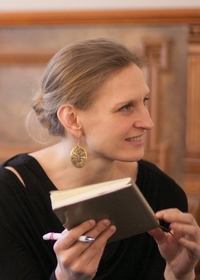Maija Spurina
Maija Spurina, a sociologist with specialties in cultural sociology and memory studies, received her Ph.D. from the New School for Social Research in New York City in 2017. In her dissertation, “Cracks in a National Narrative of the Past: Three case studies of collective memory in post-Soviet Latvia,” she shows post-Soviet Latvian national memory to be a mosaic of interrelated political, cultural, and communicative memories and points to how the disparities between these modes of memory can shift the political discourse of the past. Discrepancies between various modes of collective commemoration manifest in “mnemonic cracks” – small yet politically significant challenges that do not break the narrative structure but, when followed up and reiterated, can lead to a liberalization and opening up of the political memory.
At Yale Dr. Spurina will prepare two articles for publication. One will examine recent Latvian publications regarding Herberts Cukurs, a 1930s-era Latvian aviation hero who in World War II was a member of the local Nazi Auxiliary Police in Latvia that executed Latvian Jews. Dr. Spurina will use media reports and discussions to show the problematic place and meaning of the Holocaust in Latvian national memory and to illuminate how various social actors – historians, producers of popular art, political activists, and public officials – interact in constructing the meaning of this difficult past. The second paper will examine the representation of the Soviet period in Latvian history school textbooks and in student research papers. She finds that while contemporary Latvian history textbooks present the Soviet period as one of darkness and suffering, communicative memories such as the memories of parents and grandparents reflect a more nuanced view of the past. This article will put the issues involved into a broader context of dealing with the Soviet heritage in lands of the former Soviet Union and those of Soviet domination in Eastern Europe.

